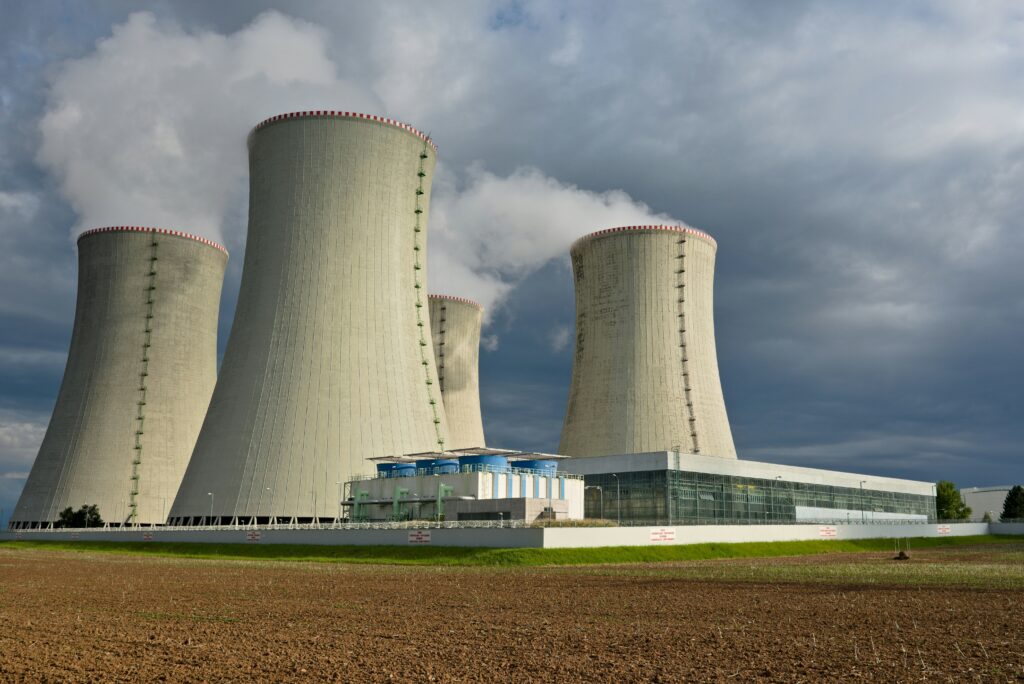
A Beginner’s Guide to Compliance and Safety
In the world of nuclear power, safety and compliance are top priorities. Nuclear facilities must follow strict rules and regulations to operate safely and protect the public and the environment. That’s where Nuclear Licensing and Regulatory Support comes in.
This guide explains what Nuclear Licensing and Regulatory Support is, why it’s important, and how companies like Certrec help nuclear facilities meet compliance and safety standards. Whether you’re new to the nuclear industry or just curious, this article will help you understand the basics in simple, clear language.
What Is Nuclear Licensing and Regulatory Support?
Nuclear Licensing and Regulatory Support refers to the process of helping nuclear facilities meet the legal and technical requirements set by government agencies. These requirements ensure that nuclear plants are designed, built, operated, and maintained safely.
Who Sets the Rules?
In the United States, the Nuclear Regulatory Commission (NRC) is the main agency responsible for regulating nuclear power. Other agencies, like the Department of Energy (DOE) and Environmental Protection Agency (EPA), may also be involved, depending on the situation.
Each nuclear facility must apply for a license from the NRC before it can operate. This license outlines specific safety requirements and procedures the plant must follow.
Why Is Licensing and Regulatory Support Needed?
Getting a nuclear license is not a one-time event. It is an ongoing process that requires continuous effort and expert guidance. Here’s why Nuclear Licensing and Regulatory Support is essential:
-
Safety Assurance: Ensures the plant is built and operated in a way that protects people and the environment.
-
Legal Compliance: Helps companies follow all laws and avoid penalties or shutdowns.
-
Efficiency: Speeds up the licensing process by providing expert knowledge and documentation support.
-
Public Trust: Shows the public that the plant is serious about safety and following the rules.
Key Areas of Nuclear Licensing and Regulatory Support
Let’s break down the different parts of Nuclear Licensing and Regulatory Support and how they work together:
1. License Applications
To start a nuclear project, companies must apply for several types of licenses:
-
Construction Permit: Required before building a nuclear plant.
-
Operating License: Needed to run the plant once construction is complete.
-
Combined License (COL): A newer option that combines the two steps.
Support teams help prepare the required documents and ensure everything meets NRC standards.
2. License Renewal and Amendments
Licenses don’t last forever. They must be renewed after a certain period (usually 40 years). Also, if the plant makes changes—like upgrading equipment or changing procedures—it must file for amendments. Support teams help manage these updates.
3. Environmental Reviews
Nuclear facilities must show that their operations won’t harm the environment. This includes:
-
Impact on air and water
-
Effect on wildlife and nearby communities
-
Waste management
Nuclear Licensing and Regulatory Support helps with environmental studies and reports.
4. Safety Analysis Reports
These detailed documents explain how the plant handles safety in all possible situations—from normal operations to worst-case emergencies.
Support teams help create and maintain these reports to ensure they meet NRC standards.
5. Inspections and Audits
Once the plant is running, it will face regular inspections and audits. Nuclear Licensing and Regulatory Support helps facilities:
-
Prepare for inspections
-
Respond to findings
-
Fix any issues identified
6. Emergency Planning
Every nuclear facility must have a plan in case of an emergency. Support teams help create, test, and improve these plans regularly.
Common Challenges in Licensing and How Support Helps
Even experienced companies can face challenges during the licensing process. Here are a few examples—and how Nuclear Licensing and Regulatory Support helps solve them:
| Challenge | How Support Helps |
|---|---|
| Complex regulations | Experts understand the fine print and help interpret it |
| Documentation overload | Teams help organize and complete required paperwork |
| Tight deadlines | Efficient planning and coordination keeps things on track |
| Technical reviews | Specialists provide accurate and compliant technical input |
The Role of Technology in Regulatory Support
Today’s licensing processes rely on advanced tools and software to manage data, track compliance, and communicate with regulators. One example is Certrec, a trusted company that offers digital platforms and expert services for nuclear facilities.
Certrec provides:
-
Cloud-based compliance tools
-
Document and records management systems
-
Real-time communication with regulators
-
Training and ongoing support
By using Certrec, companies can reduce risk, improve accuracy, and stay ahead of deadlines.
Why Choose Certrec?
Certrec is a well-known name in the nuclear industry, trusted by major utilities and energy providers. Here’s what makes Certrec stand out:
-
Experience: Over 35 years of nuclear regulatory knowledge.
-
Compliance Expertise: Helps clients prepare for NRC audits and inspections.
-
Technology-Driven: Uses digital tools to streamline documentation and communication.
-
Full-Service Support: Offers help with licensing, training, reporting, and more.
Whether you’re applying for your first license or maintaining ongoing compliance, Certrec provides the tools and support to make it easier.
Real-World Example
Let’s say a utility company wants to build a new nuclear power plant. Here’s how Nuclear Licensing and Regulatory Support might look in real life:
-
Initial Planning: The company contacts a support provider like Certrec to help plan the licensing process.
-
Document Preparation: The team helps prepare the license application, including safety and environmental reports.
-
Review Process: The NRC reviews the application. Support teams help respond to any questions or issues.
-
Construction and Operation: Once approved, the plant is built and begins operation. The support team helps with ongoing audits and updates.
-
Renewal and Amendments: After several years, the license is renewed with help from the same support team.
This process can take years and involves many moving parts. Having experts like Certrec involved helps keep everything on track.
Benefits of Professional Licensing and Regulatory Support
Let’s recap the key benefits of having strong Nuclear Licensing and Regulatory Support:
-
Saves Time: Helps move faster through complex procedures.
-
Reduces Risk: Avoids costly mistakes and penalties.
-
Builds Confidence: Helps staff, regulators, and the public trust the process.
-
Improves Safety: Ensures every part of the operation meets high safety standards.
-
Simplifies Communication: Keeps all parties informed and aligned.
Final Thoughts
Nuclear Licensing and Regulatory Support is a critical part of the nuclear energy world. It ensures that nuclear facilities meet strict safety and legal standards at every stage—from planning and construction to daily operations and future upgrades.
Whether you’re a new professional, an investor, or someone curious about the industry, understanding this process is key to appreciating the complex work behind safe, reliable nuclear power.
And if you’re looking for expert help, Certrec is a name you can trust to guide you through every step of the journey.
FAQs
What is the NRC?
The Nuclear Regulatory Commission (NRC) is a U.S. government agency that regulates nuclear power plants and materials to protect public health and safety.
How long does it take to get a nuclear license?
It can take several years, depending on the size of the project and the complexity of the application. Nuclear Licensing and Regulatory Support helps speed up the process.
Why do nuclear plants need license renewals?
Licenses are issued for a limited time, usually 40 years. Renewals are needed to continue operations safely and legally.
Can a nuclear plant operate without a license?
No. Operating without a license is illegal and extremely dangerous. Support teams ensure facilities always stay in compliance.
How does Certrec help with licensing?
Certrec provides expert guidance, digital tools, and full-service support to help nuclear companies manage licensing, audits, inspections, and ongoing regulatory needs.

